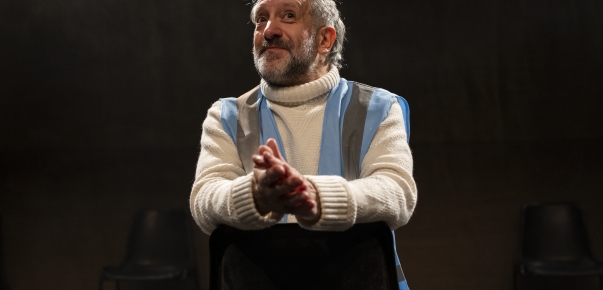50 assets to celebrate 252 years!
30 May 2018It's the Bristol Old Vic theatre's birthday! To celebrate 252 years of 'the Theatre on King Street' we've revamped our heritage assets on the website. We've chosen 50 exciting objects from the Bristol Old Vic archives at the University of Bristol's Theatre Collection and Bristol Archives to tell 50 intriguing tales about our past.
We can uncover information about the theatre's past using items in the collection. Let's examine five of the earliest assets to find out what the theatre was like over two and a half centuries ago!

1. Proposal to build a theatre
We know that the theatre was created by a group of prominent Bristolians who each invested £50 to build a new theatre on King Street. Often we say there were 50 proprietors, but take a look at the Proposal to build a theatre to find out why there aren't 50 signatures on this document.
2. Land Lease
Some people think that the theatre is in a weird location. Tucked away behind King Street, it's not in the most fashionable area of Bristol. So why did the proprietors end up building their theatre here? Look at the Land Lease to find out how two women played a crucial role in obtaining somewhere to build the theatre.


3. Committee Minutes
After they'd succeeded in finding a place to build, the proprietors needed to hire a team to do the building. There are notes in the Committee Minutes showing who was responsible for what. However, there aren't many records of meetings between the proprietors. The Committee Minutes will tell you all about the uprising that led to a new set of trustees!
4. Theatre Licence
The theatre was completed in May 1766 and opened its doors on May 30th. The proprietors hadn't secured a Royal Licence for the theatre, which meant that it was technically illegal for them to host plays due to the 1737 Licensing Act. Take a look at the Theatre Licence to discover what prompted George Daubney to finally secure a licence, 12 years after the opening!


5. Opening Night
Though the proprietors were wealthy and influential they used a common technique to disguise their wrongdoing from the authorities: rather than advertising plays, they claimed to be hosting 'concerts of musick' and 'specimens of rhetorick'. We have a playbill showing information about the productions on the first night. Check it out to find out why one of the shows on this playbill wasn't actually performed on the opening night.
Although on first sight these documents may look a bit beige and dingy, if we take a closer look they’re full of fascinating clues to what life at the theatre was really like. We hope you enjoy delving into the collections as much as we do, and if you want to help us find more stories from the theatre's past you can visit the collections yourself at the Bristol Archives or the Theatre Collection.


